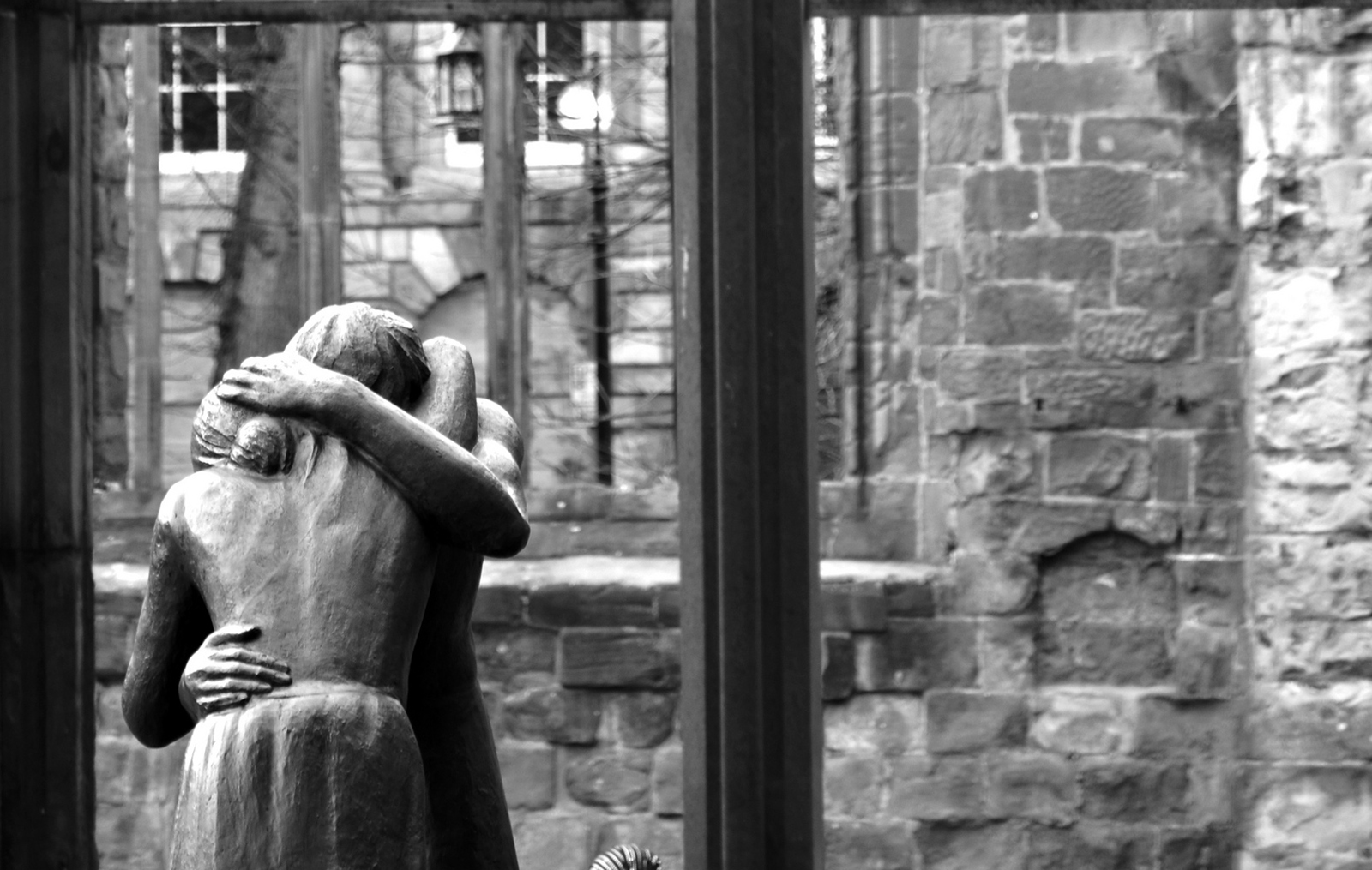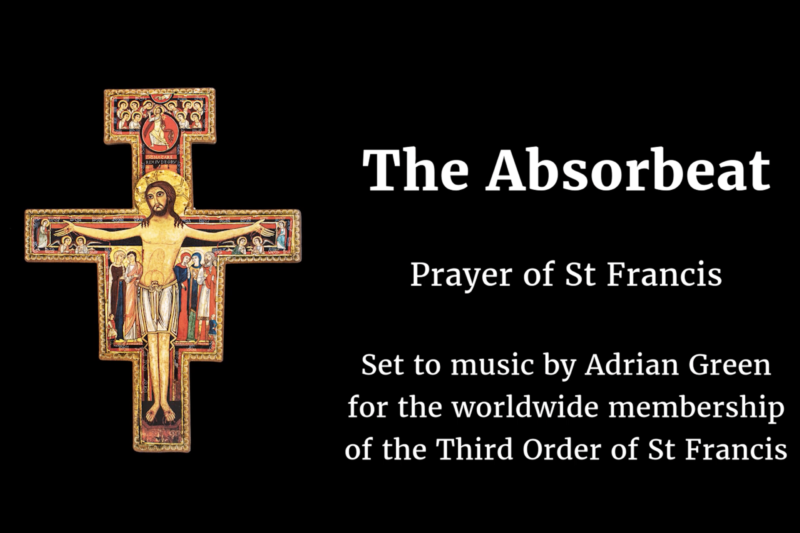Maybe sometimes we forget we’re each a Created One of God, Our Father. We’re each unique, individual, original and unrepeatable. We each have dignity and worth. We each belong to the human family, whatever the colour of our skin, the language we speak, the culture of our birth, the country we live in or our health or financial wealth. We are each created in the image of God and loved by Him. Every one of us has an irreplaceable value in God’s plan.
Living as part of humanity within Creation involves us sharing our lives with others, to help others, and to introduce God’s love to everyone. To better our humanity we need to be with others, and be for others. We cannot be selfish with our life or our skills, knowledge, abilities, emotions and love. We need to be the lesser ones, to have confident humility and to preserve ourselves from selfish ideology and preoccupation. We need to be rich in faith and to follow in the footprints of Jesus whilst seeing the fingerprints of God all around us.
To “praise and bless my Lord and give Him thanks and serve Him with great humility” is worship we can give to God not only by verbal or quiet prayer but by our work, our life, and by sharing our lives with others; especially with anyone in need. When we are not selfish with our own self we are sharing God’s Creation and His creative power in good ways, in true ways. If we base our lives on the example of St Francis we are led to imitate Jesus and by imitating Jesus we better understand the wonder of God, Our Father.
Secular Franciscan Rule – 13:
- As the Father sees in every person the features of his Son, the firstborn of many brothers and sisters, so the Secular Franciscans with a gentle and courteous spirit accept all people as a gift of the Lord and an image of Christ.
- A sense of community will make them joyful and ready to place themselves on an equal basis with all people, especially with the lowly for whom they shall strive to create conditions of life worthy of people redeemed by Christ.
Secular Franciscan Rule – 19:
- Mindful that they are bearers of peace which must be built up unceasingly, they should seek out ways of unity and fraternal harmony through dialogue, trusting in the presence of the divine seed in everyone and in the transforming power of love and pardon. Messengers of perfect joy in every circumstance, they should strive to bring joy and hope to others. Since they are immersed in the resurrection of Christ, which gives true meaning to Sister Death, let them serenely tend toward the ultimate encounter with the Father.
SFO Article 15:
- Let them individually and collectively be in the forefront in promoting justice by the testimony of their human lives and their courageous initiatives.
SFO Article 16:
- Let them esteem work both as a gift and as a sharing in the creation, redemption, and service of the human community.
SFO Article 17:
- In their family they should cultivate the Franciscan spirit of peace, fidelity, and respect for life, striving to make of it a sign of a world already renewed in Christ.
SFO Article 19:
- Rule 14 Secular Franciscans should always act as a leaven in the environment in which they live through the witness of their fraternal love and clear Christian motivations.
- In the spirit of minority, they should opt for relationships which give preference to the poor and to those on the fringe of society, whether these be individuals or categories of persons or an entire people; they should collaborate in overcoming the exclusions of others and those forms of poverty that are the fruit of inefficiency and injustice
Now is the time as God’s Created Ones to move forward and in confidence “let us begin, brothers, to serve the Lord God, for up until now we have done little or nothing”
Catechism of the Catholic Church
-
- 1818 The virtue of hope responds to the aspiration to happiness which God has placed in the heart of every man; it takes up the hopes that inspire men’s activities and purifies them so as to order them to the Kingdom of heaven; it keeps man from discouragement; it sustains him during times of abandonment; it opens up his heart in expectation of eternal beatitude. Buoyed up by hope, he is preserved from selfishness and led to the happiness that flows from charity.
-
- 1829 The fruits of charity are joy, peace, and mercy; charity demands beneficence and fraternal correction; it is benevolence; it fosters reciprocity and remains disinterested and generous; it is friendship and communion: Love is itself the fulfillment of all our works. There is the goal; that is why we run: we run toward it, and once we reach it, in it we shall find rest.
-
- 1879 The human person needs to live in society. Society is not for him an extraneous addition but a requirement of his nature. Through the exchange with others, mutual service and dialogue with his brethren, man develops his potential; he thus responds to his vocation.
-
- 2304 Respect for and development of human life require peace. Peace is not merely the absence of war, and it is not limited to maintaining a balance of powers between adversaries. Peace cannot be attained on earth without safeguarding the goods of persons, free communication among men, respect for the dignity of persons and peoples, and the assiduous practice of fraternity. Peace is “the tranquillity of order.”98 Peace is the work of justice and the effect of charity
Photos: In 1995 to mark the 50th anniversary of the end of World War II bronze casts of the above sculpture “Reconciliation” were placed in the ruins of Coventry Cathedral (donated by Richard Branson) and in the Hiroshima Peace Park in Japan. An additional cast can be found on the grounds of Stormont Castle in Belfast. To mark the opening of the rebuilt German Reichstag (parliament building) in 1999, another cast was placed as part of the Berlin Wall memorial. [Wikipedia].
Photos: Jacob Sobol








